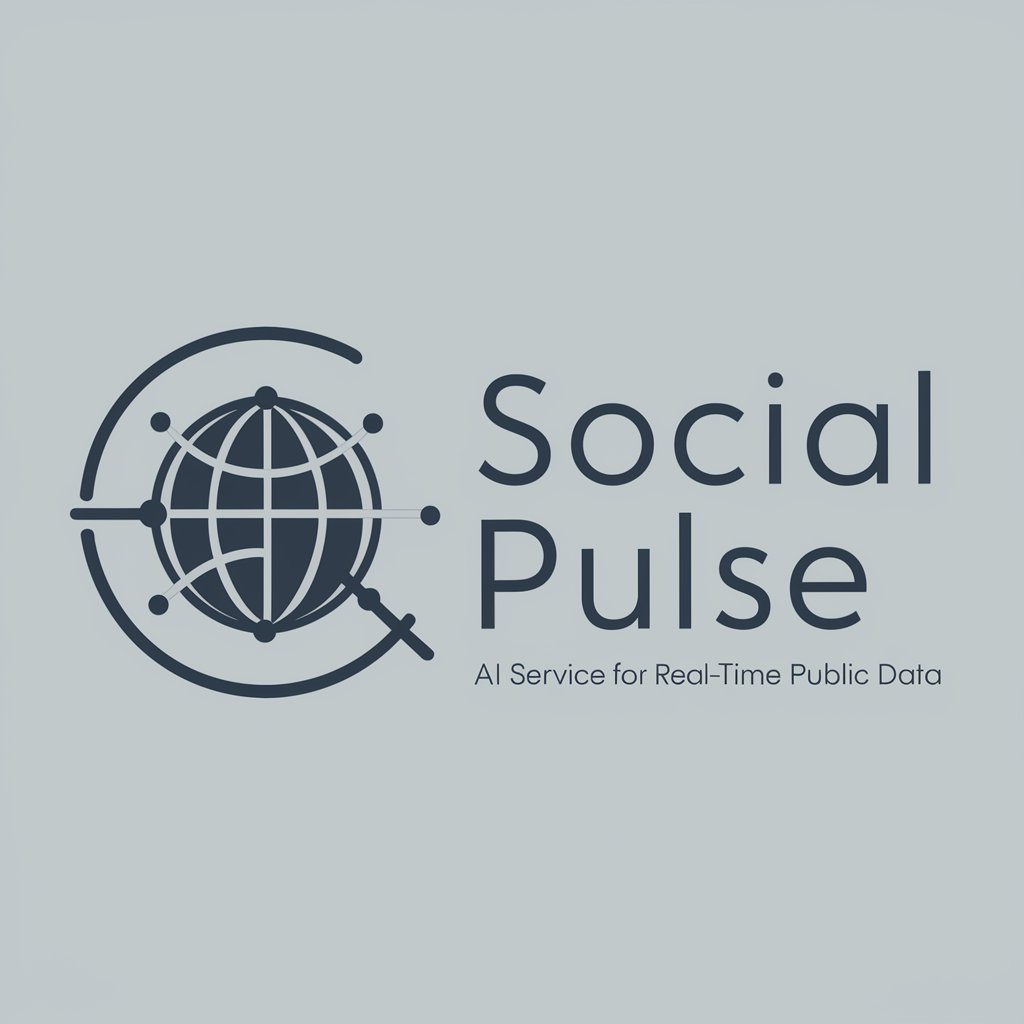7 GPTs for Public Sentiment Powered by AI for Free of 2026
AI GPTs for Public Sentiment are advanced computational tools designed to analyze, interpret, and generate insights from public opinions, emotions, and reactions across various digital platforms. Utilizing the power of Generative Pre-trained Transformers, these tools excel in understanding and synthesizing vast amounts of textual data to provide nuanced perspectives on public sentiment. By leveraging machine learning and natural language processing, they offer tailored solutions for monitoring, predicting, and influencing public discourse, making them invaluable in sectors like marketing, politics, and social research.
Top 7 GPTs for Public Sentiment are: News Topic Explorer,SocialPulse,SNS探偵🕵️♂️ 「Xプロファイラーくん」,Sentiment Canvas,Eesti Uudiste Leidja,🌐📊 Global Policy Strategist 📈🔍,日本の大臣の市場調査
News Topic Explorer
Discover news, powered by AI

SocialPulse
Empowering insights with AI-driven news analysis

SNS探偵🕵️♂️ 「Xプロファイラーくん」
Deciphering Social Patterns with AI

Sentiment Canvas
Visualize emotions with AI-powered art

Eesti Uudiste Leidja
Your AI-powered gateway to Estonian news.

🌐📊 Global Policy Strategist 📈🔍
Empowering Strategic Decisions with AI

日本の大臣の市場調査
AI-powered insights into Japan's political landscape.

Key Capabilities of AI GPTs in Sentiment Analysis
AI GPTs tools for Public Sentiment stand out due to their adaptability, from conducting basic sentiment analysis to executing complex predictive modeling. They are equipped with features for real-time sentiment tracking, trend analysis, and emotion detection, facilitated by their deep learning capabilities. Special features include multilingual support, integration with social media platforms, advanced analytics for sentiment trends, and the ability to generate reports and summaries. These tools are also capable of handling large datasets, providing detailed insights with high accuracy.
Who Benefits from Sentiment Analysis AI?
AI GPTs tools for Public Sentiment are ideal for a wide range of users, including marketing professionals seeking to understand consumer sentiment, political analysts monitoring public opinion, social scientists studying societal trends, and businesses aiming to enhance customer experience. They are accessible to individuals without technical expertise, thanks to user-friendly interfaces, while also offering advanced customization options for developers and data scientists looking for tailored analytical solutions.
Try Our other AI GPTs tools for Free
Color Consultation
Discover AI-powered Color Consultation: your digital guide for expert color advice, trend analysis, and personalized recommendations tailored to your needs.
Route Customization
Discover how AI GPTs for Route Customization leverage advanced AI to offer dynamic, efficient, and personalized routing solutions for various applications.
Fitness Matching
Discover personalized fitness solutions with AI GPTs for Fitness Matching, your digital guide to tailored workout and nutrition plans designed just for you.
Safety Advising
Explore AI GPTs for Safety Advising: your AI-powered assistant for navigating safety challenges with ease, ensuring compliance, and fostering a safer environment.
GPX Analysis
Discover the power of AI GPTs for GPX Analysis: Transforming geographical data into actionable insights with user-friendly, versatile tools designed for everyone from outdoor enthusiasts to professional developers.
Country-Specific
Discover AI GPTs tailored for specific countries, offering solutions in native languages and according to local cultural and regulatory standards. Ideal for content creation, data analysis, and decision-making.
Expanding the Impact of AI in Sentiment Analysis
AI GPTs for Public Sentiment redefine the approach to understanding and leveraging public opinion. With their user-friendly interfaces, these tools democratize access to advanced sentiment analysis, allowing for seamless integration into various organizational workflows. By offering customized solutions across sectors, they enhance decision-making processes, enabling a deeper engagement with public sentiment trends and fostering more informed strategies.
Frequently Asked Questions
What exactly is AI GPT for Public Sentiment?
It is a type of artificial intelligence that uses generative pre-trained transformers to analyze and understand public opinions and emotions from digital sources.
How can AI GPTs analyze public sentiment?
They use natural language processing and machine learning to interpret text data, identifying patterns, emotions, and trends in public discourse.
Can these tools monitor sentiment in multiple languages?
Yes, many of these tools support multilingual analysis, enabling sentiment tracking across different languages and regions.
Are AI GPTs for Public Sentiment accessible to non-technical users?
Absolutely, these tools often come with user-friendly interfaces that do not require programming knowledge to use effectively.
Can developers customize these GPT tools for specific needs?
Yes, developers can access APIs and programming interfaces to tailor these tools for specific analytical tasks or integrate them into existing systems.
What types of data can these tools analyze?
They can analyze a wide range of text data, including social media posts, news articles, customer reviews, and forum discussions.
How do these tools benefit businesses?
By providing insights into customer sentiment, they help businesses tailor their products, services, and marketing strategies to better meet consumer needs and preferences.
Can these tools predict changes in public sentiment?
Through trend analysis and predictive modeling, these tools can forecast shifts in public opinion, aiding in proactive decision-making.